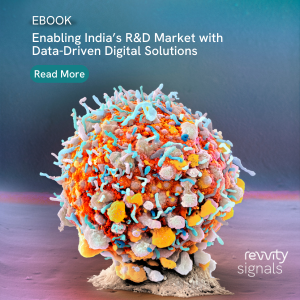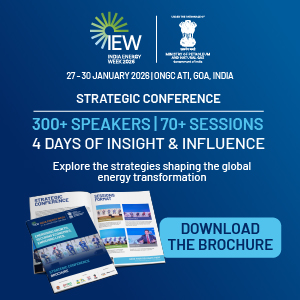Gallery
June 18, 2022
We have built a new plant for solvent resins production in Dahej : Nihar Mehta, ED, Vision Products
The fully automated plant in Dahej will start in August 2022.
June 17, 2022
Plans are to expand our chemicals stocking business in India says Dominic Studte, General Manager-MEIA, Jebsen & Jessen Chemicals
We will partner more companies in the chemicals, pharmaceutical and food ingredients industry.
June 15, 2022
We are settting up a new plant solely for coating focussed applications in Maharashtra : Jashan Bhumkar, Director, Soujanya Color
We are moving to become a full service provider, a lot of capacity expansion this year, and setting up a Mexico plant.
June 14, 2022
India is going to be the mother plant for our chemicals business says Suresh Kalra, MD India & President Asia, hubergroup
The trend in the printing ink industry is always changing, the newspaper and printing books are coming down but at the same time packaging is going up. India is one of the fastest growing packaging industries in the world. Overall, printing ink has a better future in 2022 and beyond.
June 13, 2022
We have the broadest portfolio of resins for industrial paints segment : Siva Iyer, VP, Allnex Resins
We have the broadest portfolio of resins among all resin companies, Allnex has been a significant player in the Indian resin space especially supplying to industrial paint customers in B2B space.
June 11, 2022
We see paint industry supply chains to be much stronger going forward : Nirav Raveshia, MD, N R Colours
We are one of the few SME companies who are renewable material focused and we have been selected by Meghmani Organics as one of their partners to distribute Pigments for them.
June 10, 2022
We are bullish about growth of chemical sector in India says Alok Sharman, Brenntag India
We are very bullish about the growth of India and the next 5-10 years are huge for the chemical industry.
June 08, 2022
We aim to be among top five companies in Benzene Chemistry in India: Ankit Patel, ED, Bodal Chemicals
Bodal Chemicals is the most integrated dyestuffs company in India having three phase integration starting from basic chemicals, dye intermediates, and dyestuffs. Ankit Patel, Executive Director, Bodal Chemicals talks about the growth plan of his company :
Bodal Chemicals is the largest dye intermediates player in India with a 20-25 percent market share of India's total capacity. How do you plan to increase your market share?
Our company is a dyestuff integrated manufacturer that produces 25 dye intermediates. More than 40% of the capacities of these intermediates are captively used, resulting in a considerable cost advantage for dyestuff products. Given the positive outlook for dyestuff, we want to strategically improve our captive consumption of dye intermediates. As a result, the overall market share in dye intermediates will decrease in the coming years but we are expanding in basic chemicals i.e. Chlor-Alkali and Sulphuric Acid and specialty chemicals i.e. Benzene Downstream products.
Bodal is looking at both organic and inorganic growth through new products and acquisitions. The company is entering into new products like Chlor Alkali, Benzene, its derivatives, and others.
How do you see these developments transforming Bodal?
We endeavour to move up the value chain and diversify our business from core dyestuff and dye intermediates into other specialty chemical products such as Benzene Derivatives and Chlor-Alkali products. Strong tailwinds and high demand aided the Indian Chlor-Alkali business. We purchased Mawana Sugars' Rajpura Punjab facility in the first quarter of fiscal year 2022. With revenue of Rs. 180 crores in 9M FY'22, the Chlor-Alkali business delivered a strong performance. We will manufacture Benzene Downstream products which are primarily used in pharma, specialty chemicals, and agrochemicals. As a result, our organization will offer a diverse product portfolio on a large scale to multiple end-use markets, resulting in a new version of our company.
How is Bodal Chemicals positioned both in the domestic and international market vis-a-vis its competitors?
Bodal is the most integrated dyestuffs company in India having 3 phase integration starting from basic chemicals, dye intermediates, and dyestuffs. In the domestic market, we have a 13 percent market share for dyestuffs and a 20 -25 percent market share for dye intermediates. Our global market share for dyestuff is near 3% and the market share for dye intermediates would be near 6%. We have significant capacity across a wide range of products to meet the needs of end-user industries. Although basic chemicals and Chlor-Alkali products would serve a regional market. We will be among the top five companies in the domestic market in benzene chemistry after Saykha’s expansion.
The company exports its products to countries like China, Turkey, Europe, Indonesia, etc. Any plans for increasing the company's presence in these countries and strategies for achieving it?
We do business in over 45 countries and have a product portfolio of over 200 products. This diversification requires significant resources for managing the inventory of critical raw materials and finished products, as well as a lengthy transit time. In the event of a supply chain disruption, we prefer to preserve inventories and satisfy our clients' needs in a shorter timeframe. We already have trading and marketing subsidiaries in Turkey, China, Bangladesh, and Indonesia to build a stock point and expand into new geographies and markets. Based on the need to further grow market share, we may consider other countries for the same.
The company has a dedicated R&D lab focused on dyes & intermediates and specialty chemicals. What are the new products that the lab is developing?
We have a modern, well equipped R&D lab and three in-house R&D labs for testing and continuous improvement of existing products, particularly to inspect the quality. Our R&D team has been working on process reengineering and downstream derivative products based on benzene chemistry. As a result, our laboratories are actively evolved in chlorination, nitration, and now benzene chemistry.
In FY 2022-23, the company is planning a Capex of around Rs. 400 crores to finish greenfield projects and capacity expansion? Projects and products where you will be utilizing this Capex?
All planned Capex would be invested in upgrading and expanding the Chlor-Alkali unit at Punjab and in the Saykha greenfield project for Benzene Derivatives and Sulphuric Acid products. The capacity of Sulfuric Acid and derivatives will be 340,000 tons per annum which will include Sulfuric Acid, Oleum 23, Oleum 65, Liquid SO3, ChloroSulfonic Acid, Liquid SO2, etc., We will also manufacture benzene based downstream products such as MCB, PNCB, ONCB MNCB, DNCB and 2, 4 DNCB at same Saykha location.
It has been a good year for Bodal – Dyestuff expansion, 100% stake in Trion Chemicals, Vinyl Sulphone capacity commercialization, greenfield Saykha project, and newly acquired Chlor-Alkali products in Punjab. How will these affect your revenue and profitability in the future?
The primary goal of earlier investment has been to bring a long-term sustainable business model without losing the leadership in the legacy business. FY22 has been good for us, bringing better stability to the overall business. We foresee our business would be less volatile and more diversified in the coming years since we would be catering to a broad end-use application market with a wide product basket.
What is the company's strategy for increasing revenue and profit during FY 2022-23?
In FY23, the dyestuff business will grow marginally. Dye Intermediates business will grow by additional Rs. 100-120 crore as we have commercialized Vinyl Sulphone’s capacity expansion and SPS Processors unit. We anticipate significant growth in the Chlor-Alkali business since the upgrade activity is expected to be finished by the end of this year. We foresee double-digit growth from the current level and improvement in profitability.
How is the company driving sustainability?
We have restructured our safety functions and enlarged their role as Environment, Health, Safety & Sustainability (EHSS) function. Reducing our environmental footprint, conserving natural resources and managing waste is the key to our circular economy approach and sustainability practices. Some of our Pollution Control Systems include Effluent Treatment Plant (ETP), Brine Treatment Plant (BTP), Multiple Effective Evaporator Plant (MEEP), and Effluent Spray Dryer Plant (ESDP). The company has undertaken various environment friendly measures in its different units for promoting a better environment. The company has in place adequate pollution control equipment and all the equipment is in operation. We believe it is a continuous process and there is always room for improvement.
Note: This interview has also been published on Chemical Industry Outlook 2022 and here's the link to view full version of the annual compendium.
June 07, 2022
FMC has been providing India’s farmers access to world-class product: Ravi Annavarapu, President, FMC India
What are the global trends in the crop protection and crop care business and how it will impact India?
The demand for crop protection products globally will continue to increase due to the decreasing arable land and urgent need for addressing food security. The world crop protection market including India has been undergoing transformation in response to the changing crop mix trends and regulations.
Surging population and subsequently rising demand for food, feed, and biofuel has also been contributing towards growth. The enhanced consciousness for the environment is creating preference for safer and more sustainable crop protection solutions.
Key milestones achieved by FMC India in FY 2021-22?
FMC has emerged as one of the leaders in the crop protection industry in India riding on its innovative and industry leading products such as Coragen, Benevia, Authority NXT, Marshal etc. Apart from such high-performance products, FMC engages with more than two million farmers annually to empower them on sustainable agricultural best practices every year. The company has one of the strongest pipelines of products that are customized to offer differentiated solutions to Indian farmers for their present and future needs. Beyond business imperatives, FMC has also carried forward its commitment to making a difference to the lives of rural families by investing in four key areas: safe water and good health, good agricultural practices, science in agriculture, and empowering women in agriculture.
Globally, crop protection and crop care companies' focus is shifting away from being a products company to a solutions company. What's your strategy in India?
FMC corporation is a global leader com[1]mitted to furthering sustainable agriculture through sustainable crop protection and crop nutrition solutions. FMC has been providing India's farmers access to world-class product technologies, in support of the country's aspiration to be the world's leading agricultural producer. We develop, market, and sell all major classes of crop protection chemicals - insecticides, herbicides, fungicides, and crop nutrition products. The company is significantly investing in developing and offering a suite of crop solutions customised to benefit Indian farmers across multiple crops, supported by a best-in-class pipeline of products and stewardship. 100% of our R&D investment is being dedicated to developing innovations that are sustainability advantaged.
The company aims to deliver products that not only help to maintain a safe and se[1]cure food supply, but with minimal impact on the planet. Additionally, we are venturing into technology solutions like Arc Precision Agriculture tools and drones, etc. to enable precision farming in the country.
What’s the latest on the company's R&D initiatives? When are you planning to commercialize the new molecules?
FMC's R&D team of more than 800 scientists and associates are guiding one of the most robust discovery and development pipelines in the agricultural industry. FMC also uses external collaborations, partner[1]ships and investments to enhance the diversity of the research efforts. We have invested in – and partnered with – companies that complement our own efforts. Every year we reinvest 8% of our revenue towards R&D globally.
At FMC, we believe every product must meet the sustainability expectations of key stakeholders. We are guided by FMC's sustainability goals to dedicate 100 percent of R&D investments to develop more sustain[1]able products. We discover and synthesize new molecules with differentiated modes of action to control pests that may challenge growers. We focus on molecules that can meet stringent future regulatory requirements and criteria for a successful, competitive commercial product. We screen more than 60,000 compounds annually. FMC’s global pipeline contains 35 new active ingredients (AIs) of which 20 are new modes of action Active Ingredients.
FMC has one of the global innovation centres in Hyderabad which focuses on creating solutions in keeping with local needs. FMC plans to launch more than 10 new products in the coming 3-5 years, which include many new modes of action chemistries across all segments such as Insect control, disease control, weed control, and plant health business.
Projects and products where the company is investing in FY 2022-23? What's the Capex plan for FY 2022-23?
As we just said, FMC India plans to launch more than 10 new products in the next 3-5 years. We recently launched a new research-based insecticide Corprima to support tomato and okra farmers across the country, which offers superior crop protection against fruit borers, one of the bigger pain points for Indian farmers. We are also looking at launching 4-5 more new products through the course of this year to provide relevant solutions to Indian farmers.We already have a significant manufacturing footprint in India and the company is committed to progressively invest in India.
Aligned to the larger Make in India initiative, FMC continues to support manufacturing in India for both Indian and global markets, including some high end innovations such as Isoflex at Panoli site. The company is continuously evaluating the Capex investment to augment site capacities and bring in new molecules manufacturing capabilities in India locations. We are fully committed to and invested in India.
What's your focus on new technologies like drones and others?
We deeply appreciate the proactive and favorable decisions taken by the Indian government to pave the way for early adoption of drones in agriculture. Globally, drones have proven their efficacy in fertilizing and protecting crops more efficiently. In 2022, we expect to see action on the ground with many commercial ventures making an effort to further enhance input use efficiency in agriculture. We are continuously conducting trials in the country and look forward to supporting farmers to apply crop protection solutions more effectively, efficiently and in a safe and judicious manner using drones. We look forward to having multiple label claim expansions using drones for our premium products across multiple crops approved during the year 2022-23.
FMC has been continuously investing in advancing novel technologies in agriculture. The company's unique technologies from its Precision Agriculture portfolio are designed to ensure the right crop protection products are applied exactly where and when they are needed to increase sustainability, as well as optimize yield quality and quantity while improving Return on investment for farmers. We plan to bring many of these technologies for the benefit of Indian farmers in near future.
FMC strategy is to have 50% women workforce by 2027 across all regions and job levels. How are you planning to achieve it in India?
FMC, being a global Company, has a diverse workforce and diverse Culture. Therefore, to achieve the target of having 50% women workforce by 2027 across all regions and job levels, the strategies need to be formed in abidance of law of the land and local conditions. Multiple initiatives are being undertaken at different touchpoints of the ‘employee lifecycle’ to achieve our goal - All these initiatives, under Project ‘Pratibha’, include hiring women talents from leading campuses, encouraging women in science via the FMC Science Leadership Scholarship program at leading universities, and ensuring the right representation of women candidates is present during the hiring process. Additionally, FMC as an organization is working towards building capacity in the agriculture industry through various on-ground training, including more women in diverse roles across the company.
FMC has done pretty well on sustainability. Sustainability projects planned by FMC India in FY 2022-23?
Sustainability being one of our key focuses, FMC is committed to make agriculture and farming sustainable and towards this, FMC will continue to educate farmers on sustainable agronomic practices for growing crops with soil, water and crop protection stewardship, along with increased input use efficiency.
At manufacturing level, we are looking to further reduce our environmental footprints, having already achieved Zero Discharge status for our sites at Panoli, enhanced share of our energy requirement coming from renewable sources, addressing process efficiencies and recycling equivalent quantities of plastic that we use in packing our products. Apart from this we plan to further strengthen our engagement with farming communities through more intense product stewardship training, promoting concrete actions to promote diversity and inclusion.
FMC’s efforts under Project Samarth, which deals with providing access to safe water to farming families, recently got recognition at the inaugural Water Sustainability Awards, hosted by TERI-IWA-UNDP jointly.
FMC has been successfully running project Samarth across Uttar Pradesh and Punjab to provide safe and potable water to farmer communities. Last year we expanded the program to southern states including Andhra Pradesh, and Telangana. This year we will be expanding the project to Western India including Maharashtra, Madhya Pradesh, and Gujarat. We are committed to improving the living standards of the farming communities through this initiative.
Note: This interview has also been published on Chemical Industry Outlook 2022 and here's the link to view full version of the annual compendium.
June 03, 2022
Brownfield expansion projects in Gujarat and Maharashtra will be completed in FY 22-23: Abhiraj A Choksey, MD, Apcotex Industries
Abhiraj A Choksey, MD, Apcotex Industries shares his oerspective his company's growth plan as well as the current status of the industry.
What are the global trends in the synthetic rubber and synthetic latex sector in FY 2022-23 and what will be its likely impact on India?
There are several important trends affecting the emulsion polymer industry (both synthetic rubber and latex). In the medium term, the focus for all companies and countries is on being self-sufficient (aatmanirbhar) with supply chain, given the uncertainties in many parts of the world due to Covid-19, escalating energy prices as well as shipping prices, and availability. In the medium to long term, the focus should be on environment and sustainability which we all now realize are extremely critical. Apcotex has started its ESG journey with an objective to be carbon and water neutral over the next few years.
Apcotex Industries is a leading manufacturer of synthetic rubber, synthetic latex, and emulsion polymers. What's the next set of products you are planning to manufacture?
Apcotex is focused on specialty emulsion polymers for now since that is our core competence and we see enough opportunity in our current range of products and a few adjacencies. We continue to deepen and broaden our customer base in India and abroad. We continue to invest in new applications as well as new products which are within our expertise. Over the last few years we have added NBR, NBR-PVC polyblends, NBR powder, and now recently Nitrile latex for gloves.
Key milestones achieved by Apcotex Industries during FY 2021-22?
FY 2021-22 was our best year in terms of all financial metrics. India remains our strategic market and we have high market share in India across all our products (we believe we are #1 across most of our product categories) but we still see many opportunities for growth in our country. We also export to more than 45 countries and 20-25% of our sales are outside India. Besides completing a slew of debottlenecking projects in FY 2021-22, we embarked on two major brownfield expansion projects in our plants in Gujarat and Maharashtra which will be completed in FY 2022-23.
What are Apcotex plans for FY 2022-23?
The largest Capex spend in the history of our company will happen in FY 2022-23. Besides more than doubling our synthetic latex capacities, we will also debottleneck and increase capacity by 10-15% for our synthetic rubber products. Two other big areas for us this year will be ESG and exploiting new digital technologies to improve both growth and efficiency.
Is Apcotex undertaking any major R&D initiative in India to compete effectively against global players?
Over the last couple of decades, Apcotex has invested in R&D in not only our products but also process technology and application expertise. We have leveraged these strengths well to increase market share in India and increase sales outside India. We continue to invest in R&D and explore new products that fall within our core competence.
How is the company striking a balance between environment-friendly policies and sustainable growth? When are you planning to achieve Net Carbon Zero?
We believe environment-friendly policies and growth are not at odds against each other. On the contrary they are complementary. In the long run climate/environment sustainability is imperative for survival and having the right policies will be essential for growth. Worldwide customers are already asking for environmentally-friendly and sustainable products. The world has learned the hard way and companies have to keep improving and adapt quickly. At Apcotex we have been practicing TPM for 15 years, we are certified for Responsible Care, ISO 14001 and OHSAS 18001. We are also working towards GreenCo certification this year.
Key CSR initiatives being undertaken by the company in FY 2022-23?
As a company we focus on health and education for our CSR initiatives. Our major CSR initiatives in the last few years have been around our Gujarat factory where we are working with NGOs (Edelgive and Uthaan) to improve health and sanitation. We have also contributed significantly towards paediatric cancer patients in Mumbai through an NGO called St. Jude. In the last two years, we have provided funds for COVID relief to several NGOs in both Maharashtra and Gujarat.
Note: This interview has also been published on Chemical Industry Outlook 2022 and here's the link to view full version of the annual compendium.
















